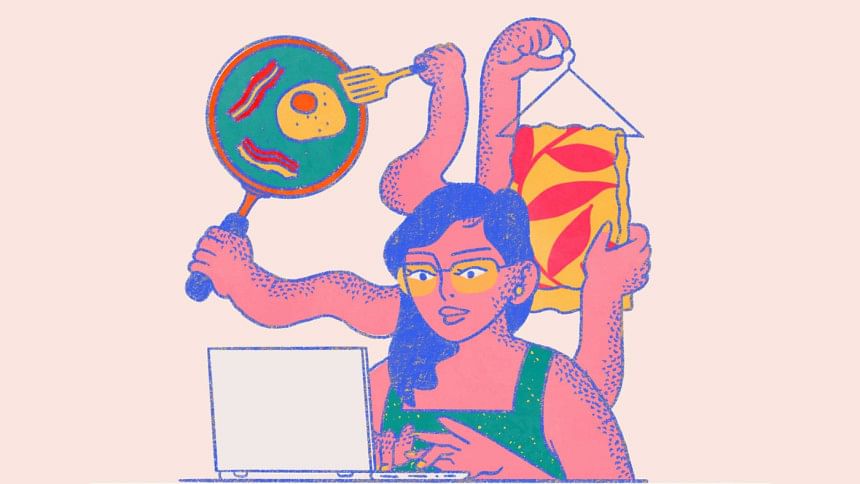Women don’t want to be superhumans

Often as children, my female peers and I would lament over the myriad privileges our male counterparts enjoyed in society, from being allowed to play for hours in the sun (a tan would not diminish their value as human beings) to going out any hour of the day (with their prime fear being that they might be mugged, not that they might be raped and killed). The "best" way our parents and elders discovered of appeasing our (those born after 1980, thereabouts) budding feminist selves was to reprimand us for even wanting to be like boys, when we were allegedly so far ahead and above them. It did work on many of us, but sadly I believe a lot of us were unable to see past the rosiness of such a sentiment.
This brand of feminism-but-not-really-feminism tends to hyper-humanise women—meaning that, far from being "equal" to men, we are told we are so much stronger, smarter, and more valuable than them. Why? Usually for our ability to birth life within our bodies, and then to work tirelessly and without a whisper of complaint to raise that life while having to put ours on hold, because the father caring for the child in the same way would be emasculating in our cultural context, but the same done by mothers proves them to be superhumanly strong.
While the words used to describe such traditionally maternal characteristics may seem like compliments of the highest degree—"sacrificing," "selfless," "unconditionally loving"—they are often just a way of making women continue to perform physical and emotional labour, so others (and not always men only) don't have to. And when a girl child grows up seeing her mother's woes being remedied by empty praises alone, she learns to expect and accept the same wherever she goes. This is why corporations, for instance, can get away with discriminating against women in terms of wages, positions, participation, etc (while a single Women's Day bouquet and a few candy bars work to establish them as being a "feminist" organisation).
But how can we expect our local businesses to be genuinely feminist, when we always succumb to the same issue of hyper-humanising women in our homes? One social media post I recently came across was by a father who essayed on about how his daughter gave up her packet of chips because her little brother was not satisfied with only his own, and how she silently cried in a corner, not letting her father see her sorrow and not boasting about her sacrifice. I was expecting to read that the father had, by the end, taught his children that his daughter should not have to make sacrifices to cater to her brother's needs, and that she did not need to appear strong by hiding her tears. Instead, it was all praise about how daughters are even better than men because of their sacrificial nature.
Do we ever stop to wonder if this sacrificial nature of women is truly inherent, or a trait that they are trained to adopt? Probably not, given how that would mean we would need to acknowledge that women, like everyone else, are just human. They get tired, frustrated, and are not always beautiful and "presentable." Nor should they have to be.
Then there is this notion that has become default: "Men just aren't as good at doing stuff around the house." While there is no logical explanation behind why men would not be able to perform household tasks "as well as women do," this is something that most men and women in our society have internalised and practise extensively. This further hyper-humanises women in the sense that now, in the modern world, women are expected to not only have full-time jobs, but also maintain the household and rear children, all at once. For that, she gets a cursory bouquet and a dessert or two in the name of Women's Day or celebratory Facebook posts about the all-sacrificial mother on Mother's Day.
We need to realise that we are doing the opposite of helping the cause of feminism when we term women as superhumans and only reward them when they adhere to that narrative. We must teach young boys that home is as much theirs to care for as it is of their female counterparts'. We need to break away from the traditional definition of femininity, so that young girls, at home and everywhere else, don't grow up thinking they are somehow less of a woman if they don't cater to every need of everyone around them. We need to stop thinking of flowers and chocolates as compensation for forcing women to try and live up to others' image of them as demi-goddesses, instead of what they are—simple and complete human beings.
Afia Jahin is a member of the editorial team at The Daily Star.

 For all latest news, follow The Daily Star's Google News channel.
For all latest news, follow The Daily Star's Google News channel. 



Comments